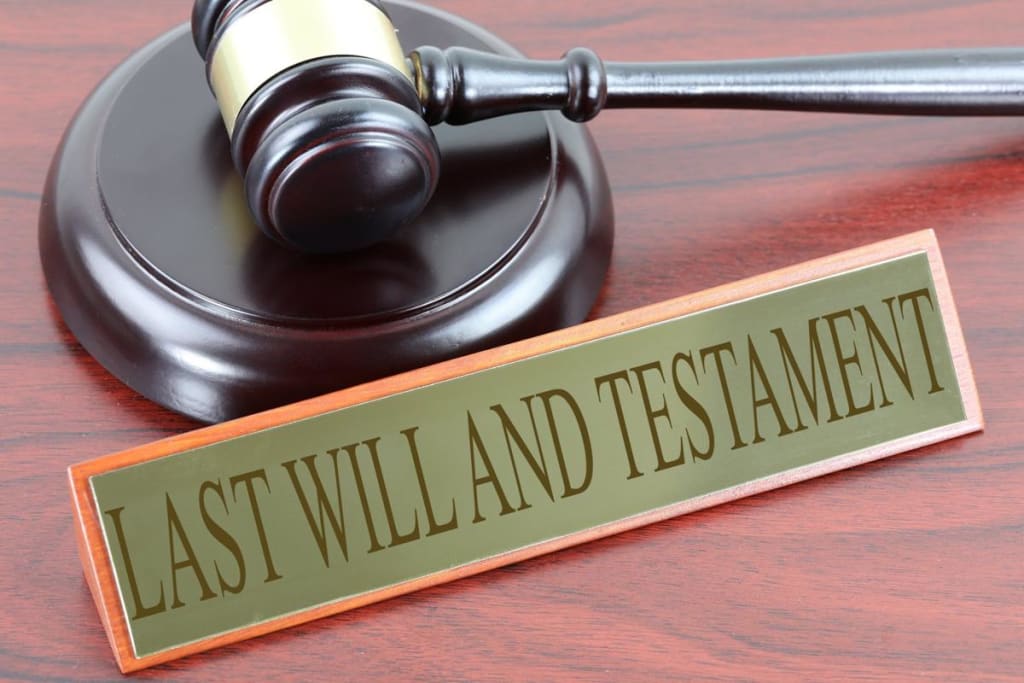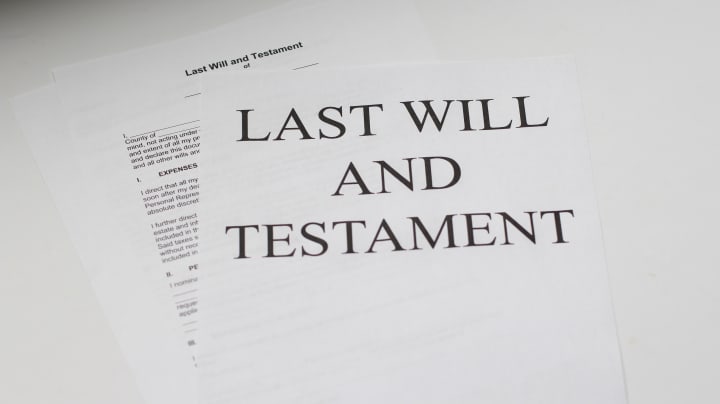Who Gets Your Possessions After You Die?
What happens to your possessions after your death depends on a lot of things that should be considered while you are alive.

It is not always easy for property and other possessions to be distributed after a person dies. It depends on many factors that people don't realize until they become part of the aftermath of the death of a relative.
According to attorneys, there are certain things that should be considered, and one set of circumstances doesn't fit all. Every case is different.
The first thing people should know is that each state has its own laws where the deceased person lived, and another set of laws if some of his property is located in another state. The legal process is easier if a person has a will in place before dying, but a lot of people do not have a will.
When a Person Dies Without a Will
The laws of the state protect everyone, whether he or she dies with or without a will. It is so much easier though if a will is in place before a person dies.
The legal term for someone who dies without a will is "intestate." The intestacy laws of the state where the deceased resided will determine how their property is distributed. This includes all bank accounts, securities, real estate, automobiles, and other assets that were in the person's possession before he died.
Even when the intestate laws take over, where your property goes depends on the marital status of the person, and whether the person had children or not. Usually, the property is distributed in equal shares to heirs. Heirs could include a spouse, parents, siblings, aunts, uncles, nieces, nephews, and even distant relatives. When no relatives can be located, the entire estate goes to the state.
When a Single Person Dies Without a Will
When a single person dies with children, his parents are entitled to receive the entire estate if they are still living. If the single person had children, then the estate will be shared by the children. If any child has died before the parent, then that child's share will go to his child if there is one.
If there are no children and no parents, then the estate will be divided into equal parts among the person's siblings, including half-siblings. If there are no siblings, the next group will be nieces and nephews. If none exist, then the estate should be divided among relatives on the mother and father's side of the family. So, you see there is a hierarchy of beneficiaries.
When a Married Person Dies Without a Will
If a married person dies without a will, his estate automatically goes to the surviving spouse. If there are children, the surviving spouse gets only one-half of the estate, and the remaining portion is divided among the children.
Answers to Some Questions

Photo by Melinda Gimpel on Unsplash
Estate distribution can be quite challenging after a person dies. That's why it is best to plan in advance. An estate planning attorney in your state is able to answer your questions and draft a valid will for you because every adult should have one.
In the meantime, here are some answers that might give you some peace of mind until you see an attorney.
- Debts: Usually, debts of the deceased die with him, and are not passed on to family members. The deceased's estate is liable for the debts, but the deceased's family is not. If a person has joint debts, then the surviving person is still responsible for the debts.
- Student Loans: All federal student loans are discharged by the government after a person dies. According to the United States Department of Education, the student loan dies with the borrower only if it is a federal loan. Private loans still have to be paid by the borrower's estate.
- Lease Agreements: Any lease agreements do not automatically terminate upon one's death. Generally, a tenant's death means the end of a lease, but the estate is responsible for paying all the rent that is owed.
- Social Media Accounts: The rules are different for Facebook, Twitter, Instagram, Pinterest, and other accounts. People can decide before their death what they want to happen with their social media accounts.
Disclaimer
This article about a last will and testament is accurate and true to the best of the author’s knowledge. The content is for informational purposes only. It does not substitute for personal counsel or professional legal advice.
About the Creator
Margaret Minnicks
Margaret Minnicks shares articles with readers all over the world. Topics include celebrities, royal family, movies, television, foods, drinks, health issues, and other interesting things. Thanks in advance for TIPS that are sent my way.






Comments
There are no comments for this story
Be the first to respond and start the conversation.